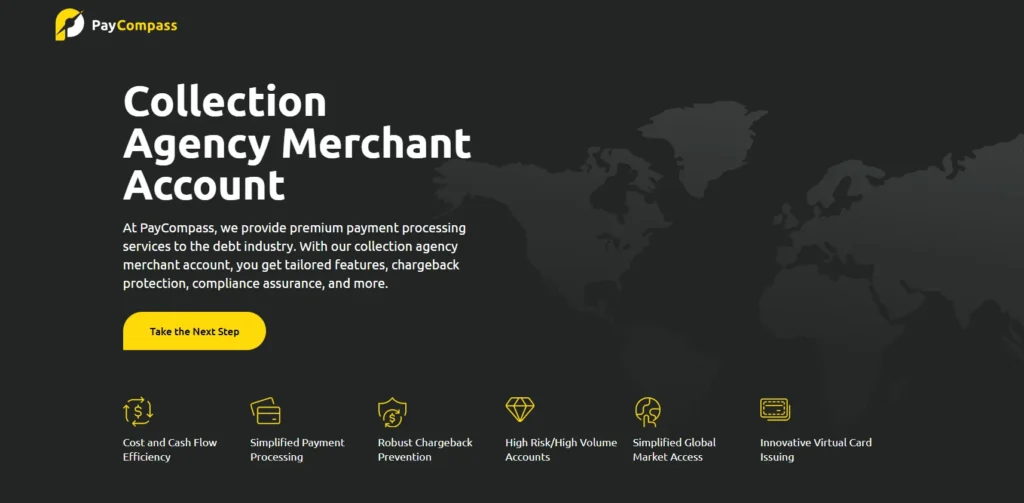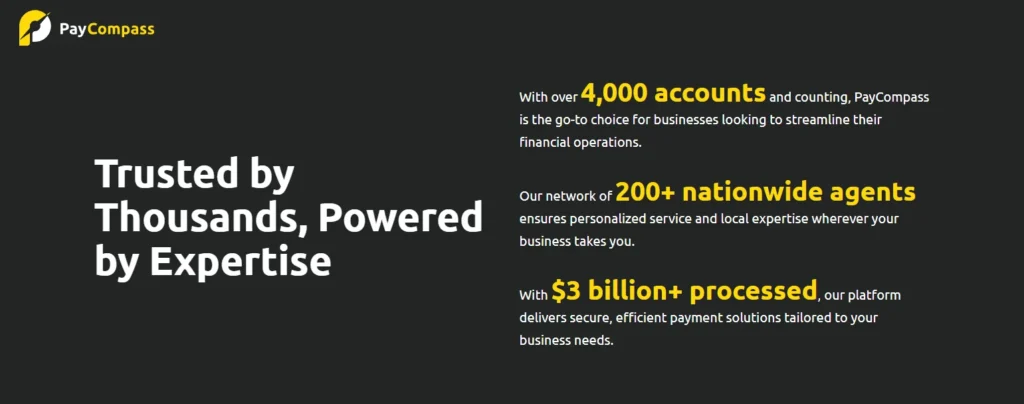Debt collection is often viewed with skepticism due to aggressive tactics. These tactics can really place strains on relationships and even create legal risks. However, if you can manage to master successful debt collection techniques via FDCPA rules, you’ll hold the key within the industry. Essentially, the most skilled collectors understand that persuasion, compliance, and strategy work better than intimidation. In fact, getting a debt collection merchant account is an important part of this, as this modern tool can help you maximize debt recovery all while staying compliant.
Successful Debt Collectors Understand the Pain Points
In 2023, we hit $17.06 trillion in debt. That number just…wow. With the debt ceiling getting that high, it really gets people thinking. Especially those dealing in debt recovery.
During that timeframe, people began to vanish. They wouldn’t answer calls – you name it. To many in the business of debt collection, trying to get people to pay seemed downright impossible. No matter what debt collectors did, from reading the right scripts to remembering to follow the rules, it just didn’t seem to pan out. Over time, people learned that it isn’t about the paperwork, it’s about the people.
Importantly, real people have real lives and real problems. So, by all means necessary, successful debt collectors understand what’s going on with the people who owe the debt and how it truly makes a world of difference.
TL;DR
For debt collection done right, here’s a short list of what to know:
- Basically, get inside people’s heads. Understand why they’re not paying and talk to them like humans.
- Be nice! Empathy and trust go a long way when it comes to successful debt collection techniques.
- Make paying back fun (or at least less painful) with games and rewards.
- Show people they’re making progress; it keeps them going.
- Use tech like AI and blockchain to make things easier and more trustworthy.
- Stick to the rules! FDCPA is your friend, not your enemy.
- Don’t just call; use texts, emails, whatever works.
- Use data to figure out who to call, when, and how.
- Make payments easy with ACH and flexible plans.
- PayCompass specializes in high risk debt collection merchant accounts
The Psychology of Debt Collection
To really be successful at debt recovery, you’ve got to understand the psychology behind financial decision-making. Debt is more than numbers. In fact, it’s deeply emotional, driven by fear, avoidance, and sometimes even denial. When a collector understands these psychological factors, they can break through resistance and create a path toward resolution.
Let’s get into these more below to understand the psychology behind recovering debt:
Debtor Profiling
One of the most overlooked aspects of effective collection strategies is understanding who you’re dealing with. Not all debtors are cut from the same cloth. In fact, some genuinely want to pay but lack the means. Others, actively avoid repayment. The key is to segment debtors. This is done based on behavior patterns, communication preferences, and financial standing.
A structured approach to profiling allows collectors to tailor their outreach. For instance, a debtor who chooses to cooperate may respond well to a gentle nudge, while debtors with a habit of delinquent payments may need firmer, more structured follow-ups.
Below, you’ll see a list of debtor profiles to transform your debt recovery efforts from a one size fits all to a strategic, result-driven practice:
| Debtor Profile | Characteristics | Recommended Approach |
|---|---|---|
| Financially Stressed | Low income, multiple debts | Flexible payment plans, financial counseling |
| Procrastinator | Forgetful, disorganized | Frequent reminders, easy payment options |
| Disputer | Questions validity of debt | Clear documentation, patient explanation |
| Strategic Defaulter | Able but unwilling to pay | Firm approach, potential legal action |
| Temporary Setback | Usually reliable, unexpected hardship | Short-term relief options, empathetic communication |
Emotional Intelligence in Collections
A top-notch debt collector knows that how you say something, when you say it, and how you show it can be just as effective as any legal tactic. In these cases, it’s referred to as emotional intelligence. It means that you know how to turn a defensive debtor into someone who’s willing to work with you.
Of course, empathy isn’t where you let debtors off the hook. It’s where you see things from their perspective, acknowledge their worries, and then guide them toward a solution that works for everyone involved. The best collectors out there build trust and understand that strong interpersonal skills are a critical piece of the most successful debt recovery strategies.
Motivation Factors
It’s important to understand the answer to why a debtor decides to pay. Honestly, the answer tends to vary. However, tapping into recovering debt requires understanding what that driving factor is. For some, it’s the desire to restore their credit. For others it’s the need to avoid legal action or regain financial stability.
By identifying key motivators, collectors can frame conversations in ways truly connected with the debtor. So, instead of merely demanding payment, they can highlight how resolving a debt leads to impressive gains like financial freedom, reduced stress, and future opportunities. Additionally, offering flexible payment plans or incentives that address the debtor’s situation can be the push they need.

Stress management techniques are incredibly important for any debt collector working on debt recovery.
Collector Mindset
In order to really excel in successful debt collection techniques, an effective collector needs to cultivate a distinct mindset. This would be one of a strategic problem solver. Now, to garner this success depends on a delicate balance of determined persistence and agile adaptability.
Collectors who expand upon composure, unwavering professionalism, and a laser-like focus on achieving their objectives consistently do better than those who resort to aggressive or even pressure-driven tactics.
Additionally, cognitive reframing is where collectors view objections as an opportunity instead of a roadblock. This helps in maintaining morale and effectiveness as you guide debtors toward solutions that benefit everyone.
Stress Management
Stress management is all about staying cool under pressure. And in this sector, we’re dealing with tough conversations day in and day out. That can be draining. It makes stress management a must-have for anyone working on collection strategies. In fact, a calm collector is more effective and can create better interactions with debtors.
Doing things like deep breathing, taking structured breaks, and managing your workload can make such a huge difference in preventing burnout. In an industry where persistence is everything, managing stress helps you in making sure your collection strategies actually work.
Goal-Setting and Persistence
Inevitably, debt collection is a long game. This makes it really important to establish clear, realistic targets so that collectors stay motivated and focused. Structured goals like daily call quotas, recovery percentages, or personal improvement benchmarks provide direction.
Additionally, resilience is just as important. In this industry, rejection happens. However, the best collectors out there don’t take it personally. Instead, they view all debt recovery interactions as a stepping stone toward the end goal of success.
Innovative Collection Strategies
Sticking to old-school tactics in today’s debt collection world is a quick way to get left behind. Those who follow the most successful debt recovery techniques are thinking outside the box, coming up with creative, forward-thinking ways to connect with people and not push them away. The real secret is helping them find a solution that makes sense for them when recovering debt.
Let’s take a closer look at the creative strategies you could be using below:
Gamification of Debt Repayment
Sometimes, we need to make paying back debt feel less like pulling teeth because one of the toughest things about collection calls is getting people to switch from ‘I’m ignoring this’ to ‘Okay, let’s figure this out.’
That’s where gamification for recovering debt comes in. It’s basically about adding a little fun and motivation to the whole thing. You can use points, badges, or incentives for hitting certain milestones. It turns something that’s usually stressful into a process that feels structured and, dare I say, even a little rewarding.
Reward Systems
Just asking people to pay simply isn’t enough most of the time. You’ve got to give them something a little extra. When recovering debt, a good reward system is paramount. This gives people a good reason to stick to their payment plan. This can be in the form of discounts on future interest, loyalty points, or other financial perks. In fact, these rewards reinforce good behavior and keep people engaged. Additionally, you can even customize these incentives based on what people actually care about while driving home the importance of paying on time.
Progress Tracking
To most people, debt can feel like a mountain. This is especially the case if those in debt can’t see themselves getting anywhere. This is why showing people their progress is incredibly important when debt recovery is the ultimate goal. This is because it gives them a sense of accomplishment and keeps them motivated to stick with it. In all honesty, it makes them feel like they’re in control of the situation.
With mobile apps, interactive dashboards, or even just simple acknowledgements when they hit a milestone as part of your successful debt recovery strategies playbook, you can use psychology to make a huge difference all while making the process far less overwhelming.

It’s important to have a plan of action for debt recovery that works and keeps debtors motivated.
Technology-Driven Solutions
The role of technology in successful debt collection techniques is no longer optional, it’s absolutely essential.
In fact, according to a report from EY, even before the pandemic, the average collections rate was below 20%, the lowest in 25 years. Moreover, banks’ outbound collections strategies have been costly and inefficient, with the success rate of these campaigns standing at roughly 5%.
AI-driven systems, automation, and digital payment solutions are truly transforming how agencies approach collections. This makes interactions more efficient and even debtor-friendly. Things like predictive analytics are used to find the best times to reach out to a debtor or even automated payment reminders that reduce missed payments. With technology at the forefront, the process is much smoother and gives collectors the tools they need to be much more strategic and effective in their methods.
AI-Powered Negotiation Assistants
We all realize that AI is no longer a sci-fi thing. In fact, it’s changing how we do collection strategies at this very moment. We’re seeing things like AI-powered assistants that can analyze how people behave, predict the best ways to negotiate with them, and even adjust messages with a quickness to get better responses.
We can see that when collectors use machine learning, they can literally personalize their approach so that each person gets the message style that is most likely to work.
Blockchain for Transparent Debt Tracking
In order to build trust and keep it in debt collection can be a major hurdle. You’ve got disagreements over payments, confusing balances, and miscommunication that no doubt creates friction. And with the FDCPA (Fair Debt Collection Practices Act) focusing on transparency, we must find ways to take that a step further. This is precisely where blockchain comes in. With it, every transaction is securely recorded, cutting down on misunderstandings and disputes.
Plus, smart contracts can automate repayment agreements. This way, you’re sticking to the rules and making the process even easier for all involved. The result is a debt recovery process that’s more accountable, efficient and most importantly, trustworthy.

The most successful debt collection techniques include blockchain.
Virtual Reality Debt Counseling
The way of the future when recovering debt is here. Instead of just telling people about their finances, you could actually show them with virtual reality for debt recovery. In today’s day and age, debtors could step into a virtual world where they can see the real-life consequences of their financial choices, giving them a hands-on lesson that really sticks with them.
With VR, you can simulate real-world situations. This helps them understand things like budget, debt repayment, and even long-term financial health. With this interactive approach, financial education is even more accessible and impactful than ever before.
Ethical Considerations in Debt Collection
At the end of the day, the most successful debt collection techniques get the money back by doing it the right way with respect and within the law. Of course, the best collectors out there know that everyone’s situation is different and keeping your integrity is incredibly important for long-term success. It’s crucial to find the right balance.
Additionally, given that the Consumer Financial Protection Bureau (CFPB) recently passed a rule expanding the communication tools that collection agencies can use when collecting debt. Now collection agencies can contact debtors via text, email and social media messaging apps. However, there’s a caveat as they’re limited to seven calls per debt per week and must provide consumers a way to opt out.
Quite obviously, you need to get results, but at the same time, you need to treat people fairly.
Now, let’s explore these ethical challenges and strategies in more detail:
Fair Debt Collection Practices Act (FDCPA) Compliance
In order to do things ethically, the FDCPA can’t be ignored. As the rulebook, it sets the bar for what you can and can’t do. This way, people aren’t harassed or treated unfairly. For collection agencies, you can build trust through regular training, automated checks, and audits, as these are all essential if you want to keep your practices legal and ethical.
Communication Boundaries
Communication is key, but you’ve got to know where to draw the line. There’s a big difference between being persistent and being a bit of a pest. When it comes to truly mastering collection calls, you’ll know when, how, and how often to contact someone in a way that gets them to work with you (not avoid you). Setting clear rules, such as limiting calls, giving people opt-out options for digital correspondences, and using AI to help keep messages professional. All and all, this makes things better for everyone.
Below, you’ll find the FDCPA guidelines and best practices to use with each communication channel for debt recovery:
| Communication Channel | FDCPA Guidelines | Best Practices |
|---|---|---|
| Phone Calls | Limited to 8am-9pm local time | Use predictive dialers with time zone settings |
| Must include opt-out option | Use clear subject lines, avoid spam triggers | |
| Text Messages | Consent required | Keep messages brief, include opt-out instructions |
| Social Media | Privacy must be maintained | Use only for location purposes, not public posts |
| Physical Mail | Must use opaque envelopes | Use plain envelopes without revealing content |
Dispute Resolution Procedures
Even the best debt recovery efforts are bound to have disputes. This means you need a clear and fair way to handle those complaints. Without it, things can escalate into legal problems or hurt your reputation. A good dispute process means clearly explaining people’s rights, offering mediation, and using digital systems to track everything. Importantly, when people feel like their concerns are heard, they’re more likely to work with you.
Social Responsibility in Collections
These days, successful debt collection techniques are geared toward making a positive impact. Agencies that focus on ethical practices and community initiatives see better results. Additionally, they build even stronger relationships. When debt collectors place a focus on fair treatment, flexible payment options, and financial education, they can make a big difference.
Financial Education Initiatives
Giving people the tools and resources to better manage their money will help them from falling behind all over again. In order to improve collections and debt recovery efforts, things like budgeting tools, online courses, and coaching can make a big difference. In fact, when people see the awesome benefits that come with paying back their debt, they’re much more likely to stick with it.

Offering debtors things like budgeting tools, documents, and financial education apps can help in your debt recovery efforts.
Hardship Programs
Without a doubt, not everyone who owes money is trying to avoid paying it off. In some cases, they just can’t. When attempting to recover debt, this is where hardship programs come in. A hardship program offers flexible payment plans, interest rate reductions, and temporary breaks in order to make repayment easier. Additionally, these programs aim to reduce default and keep relationships positive. Honestly, when you create programs with empathy and efficiency, you’re going to see much better results. ACH debt collection solutions, for instance, let you set up automated, flexible payments that adapt to people’s situations.
Advanced Recovery Techniques
Advanced techniques let you handle those complex situations. They allow you to track down people who’ve vanished, finding hidden assets, and teaming up with others to get better results.
Let’s see what advanced techniques can really boost your debt recovery rates:
Skip Tracing Mastery
Sometimes, people do more than miss payments, they basically disappear, ghosting debt collectors. That’s when you need advanced skip tracing to find people who’ve changed everything. This includes addresses, numbers, even names. Modern skip tracing goes way beyond basic searches. With AI, cross-referencing records, and using real-time data, you can track people down more accurately.
Social Media Intelligence
I’m certain we can all see that these days, social media is a goldmine. When it comes to the most successful debt collection techniques and strategies you can verify jobs, find assets, or get updated contact info. But, you’ve got to be ethical. This means you need to stick to the rules and avoid sneaky tactics.

Collection strategies these days involve using things like social media intelligence to get updated contact info and verify employment.
Data Analytics for Asset Discovery
Big data is changing everything when it comes to collection strategies. In fact, it makes them way more effective than having to second-guess yourself. With advanced analytics, you can figure out someone’s financial situation, find hidden assets, and see other income. Machine learning can analyze huge amounts of data to spot patterns in spending and financial behavior.
Strategic Partnerships
When recovering debt, no one works alone. The best agencies build strong networks, teaming up with data providers, payment processors, and compliance specialists. Sharing resources and insights helps you improve your techniques, cut costs, and get better results.
Legal Firm Alliances
Some cases need legal action. Partnering with attorneys who specialize in debt collection litigation lets you handle legalities with confidence. These partnerships give you access to expertise in lawsuits and settlement agreements. Having legal backing also encourages people to work with you before things get messy.
Credit Bureau Collaborations
For many people, their credit score is a big deal. By working with credit bureaus, you can create a strong incentive for paying back. You can report delinquent accounts and offer opportunities that aim to improve their credit.
Automated Clearing House (ACH) Optimization
Electronic payments are crucial. Optimizing ACH debt collection reduces costs, speeds up processing, and is a surefire way towards consistent payments. Using AI to predict the best times for withdrawals and personalizing payment schedules helps reduce failed transactions and boost recovery rates.
Recurring Payment Setup
Automated recurring payments are a great way to maintain steady cash flow. Setting up structured schedules reduces missed payments and makes it easier for people to stay on track. With flexible options and AI-driven recommendations, you can create sustainable plans that fit people’s situations.
Same-Day ACH Processing
Speed matters. Using same-day ACH debt collection eliminates delays, improves cash flow, and makes people happier. Instant payments reduce processing time, ensure immediate confirmation, and provide a seamless experience.
Multichannel Communication Strategies
You can’t just rely on one way to talk to people. This is because everyone is different. Some like texts, some like emails, and even still, some like phone calls. That’s why you need a collection strategies approach that uses multiple ways to connect.
Here are some ways to create a multichannel approach when it comes to recovering debt:
Digital Outreach Optimization
The future of debt recovery is meeting people where they are. In fact, it’s so much more than just calls and letters. You’ve got to use digital platforms like social media, online portals, and AI messaging.
Email Sequencing
Emails are only effective if they’re sent at the right time, with the right content. With collection calls becoming less effective, email sequencing is a great alternative. A good email strategy includes personalized subject lines, clear calls to action, and well-timed follow-ups.
SMS Reminders
Text messages are immediate. They can remind people about payments, due dates, or repayment options. But, you’ve got to be careful. This is because the FDCPA has set rules for SMS communication. This means you don’t come across as intrusive or misleading. When it’s handled in the right way, SMS reminders are a convenient and non-confrontational way to keep repayment fresh in mind.
Voice Analytics in Collection Calls
Indubitably, every call is a chance to learn something. With collection calls still being important, voice analytics is changing how we understand and respond to people. Speech recognition and sentiment analysis help you detect stress, hesitation, and even how engaged they are in the conversation. There’s no doubt that a calm and empathetic response can turn a tough call into a productive one.
Tone and Sentiment Analysis
Understanding the emotions behind words is just as important as the words themselves. AI tools can analyze tone and sentiment in real-time. This lets you adjust your approach on the fly. If someone sounds defensive, they may need reassurance. At the same time, someone willing to pay may benefit from an immediate offer. When you place a focus on emotional intelligence in your collection strategies, you can increase cooperation and minimize resistance.

Voice analytics matters when it comes to successful debt collection techniques.
Script Optimization
A good script is a roadmap to success. It’s important to refine it based on real call data. This way, you’re consistently using the most effective language, tone, and timing. In fact, AI-driven script optimization analyzes successful calls and gives you real-time suggestions.
Data-Driven Collection Strategies
Data is inevitably a real game-changer. It lets agencies make smart, informed decisions. And these decisions wholeheartedly boost their results. Collection strategies powered by data analytics give you real-time insights into people. These include how they behave, pay, and a whole lot more. This leads to smart and more accurate actions.
Here’s how to leverage data in your debt collection system:
Predictive Analytics for Collection Prioritization
One of the most powerful tools for recovering debt today is predictive analytics. This is because in debt recovery, you can’t afford to be shooting in the dark. By honing in on advanced statistical models, collectors can pinpoint high-probability cases for recovery and really streamline their outreach efforts. The most successful debt collection techniques include this approach because it leads the way for more focused actions and reduces wasted resources.
Behavioral Scoring
It’s important to note that not all debtors are the same. This makes understanding their unique payment behaviors is key, especially if you wish to improve your collection outcomes in debt recovery.
Behavioral scoring is where you build custom models based on debtor payment history, engagement patterns, and other relevant data. By doing this, you’ll be able to segment debtors more effectively and personalize your collection approach.
Time-to-Pay Forecasting
Alright, let’s get down to brass tacks here and talk about hitting debtors at the right moment. This is all about precision and knowing when someone is most likely to pick up and even more importantly, to pay. Time-to-pay forecasting uses machine learning algorithms to predict when debtors are most likely to pay. This improves collection efficiency by timing outreach appropriately.
Incorporating external economic indicators into these forecasts makes your predictions even more reliable so that your team is prepared for the best time to initiate that contact.
Performance Metrics and KPI Tracking
If you really want to keep your debt collection efforts sharp, you can’t just set it and forget it. You need relentless performance metrics and KPI tracking. This means you need a robust system that’s carefully crafted to track every nuance, every data point for areas of optimization.
Using real-time dashboards and predictive KPI modeling also helps by anticipating performance trends, allowing managers to proactively adjust strategies.
Collector Efficiency Metrics
A successful debt recovery program is also about the people behind those strategies. When you analyze collector efficiency metrics, you’ll be able to identify the best practices and techniques used by top performers all while pinpointing those specific areas where others can improve.
Additionally, we can elevate this with AI-driven performance analysis. This is where we’re identifying the most successful debt collection techniques. This is based on each individual and allows debt recovery agencies to tailor strategies to their specific strengths and weaknesses.
ROI Analysis by Collection Method
Every time you attempt to get someone to pay, it costs money. This is why you need to make sure you’re getting a good return. This is precisely where ROI comes in. Basically, you want to figure out which collection calls or collection strategies you’re using are actually worth it.
Of course, this isn’t a guessing game. You can use machine learning in order to find the best strategies to keep yourself from wasting money on things that don’t work. Additionally, you’ve got to keep an eye on things and adjust as you go. With ongoing ROI analysis, when something isn’t working, you can change it up, be smart and use your resources wisely so that you get the best possible results.
ACH debt collection is made easy with our successful debt collection techniques and system.
Why Debt Collectors Are Considered High-Risk Businesses & How to Avoid Common Pitfalls
Aggressive Tactics: The Reason Debt Collectors Are Disliked
So, let’s get real here. Absolutely nobody likes getting calls about money they owe. And when those calls are, like, super pushy with debt recovery, that’s when things can get ugly. Here’s some of the reasons people get annoyed, complain, and in some cases, they even sue:
- Harassing phone calls – Constant calls at odd hours can lead to complaints and legal action.
- Threatening language – Using intimidation or misleading statements can violate consumer protection laws.
- Unfair credit reporting – Incorrectly reporting debts or refusing to correct errors damages consumer trust.
- Lawsuits and complaints – High volumes of consumer complaints make debt collectors a prime target for regulators.
All of this could make people feel like you’re kicking them when they’re down. In fact, practices like these really lead to an overall negative perception of the industry. They increase regulatory oversight and make banks and payment processors pretty hesitant to work with debt collection businesses.
Why Debt Collectors Are Considered High-Risk by Financial Institutions
Banks and payment processors tend to see debt collectors as a bit of a risky bet. In all essence, you can’t really blame them for that. People will fight back and try to reclaim payments. That means a ton of disputes, which could be a real headache for any bank. Here’s the reasons in a bit more detail:
- Chargebacks & disputes – Consumers frequently challenge collection attempts, leading to high chargeback rates.
- Regulatory scrutiny – The industry is closely monitored under laws like the Fair Debt Collection Practices Act (FDCPA) and Consumer Financial Protection Bureau (CFPB) regulations. When it comes to the FDCPA violations list, it’s super strict and mistakes could mean serious consequences.
- Reputational risks – Financial institutions don’t want to be associated with unethical or legally questionable business practices.
All and all, this classification can make it tough for debt collectors to attain merchant accounts, payment processing services, and even favorable banking relationships.
How Debt Collectors Can Stay Compliant
In order for debt collectors to avoid all the headaches and stay on the right side of the law, they must follow specific protocols. Here’s some of the collection strategies that are a must in order to get it right:
- Adhering to FDCPA guidelines – Ensure collectors avoid harassment, false threats, or misrepresentations under the Fair Debt Collection Practices Act.
- Recording communications – Keeping records of all interactions can protect against false claims.
- Training staff properly – Educate employees on legal limitations and ethical collection practices.
- Working with compliant payment processors – Seek financial partners like PayCompass who understand the industry and support compliant businesses.
- Implementing dispute resolution processes – Establish clear procedures to address consumer disputes before they escalate.
Basically, it’s all about being transparent and compliant. That’s how you build a good reputation, avoid trouble with the regulators, and make recovering debt a whole lot smoother along the way.
Tying it back to PayCompass
At PayCompass, we’re here to make life easier. When it comes to ACH debt collection and really nailing your collection strategies, we step up. With us in your court, it’s about getting paid faster and smarter.
At PayCompass, we’ve got the tools that actually make a difference. Our ACH optimization and same day processing give you cash flow magic. Our cutting-edge payment solutions, secure virtual card technology, and high-risk expertise are just some of the ways we’ve got your back.
Here’s a closer look at how we can help you with the most successful debt collection techniques and beyond:
Tailored Payment Processing Solutions – We’re a payment gateway built for debt collectors. We streamline payments, keep things secure, and make sure you’re compliant. We’re focused on tailored solutions for agencies managing overdue accounts.
Robust Chargeback Protection – Chargebacks can be such a pain. We’ll help you cut them down and deal with disputes so you can set your sights on getting paid.
Compliance Assurance – We’ve built a system that’s compliant from the ground up. We handle everything (payment acceptance, settlement, minimizing disputes, protecting you from chargebacks). You can recover debts even more efficiently because we optimize payment processing for debt collection agencies with a strong and compliant system.
Multi-Currency Support – If you need to deal with payments from all over the world, we’ve got you covered. Our secured high-risk merchant account supports currencies in over 170 countries.
Dedicated Expert Support – With us, you’re not alone. We’ve got a team of experts that are at-the-ready to help you through the whole process. No matter the issue, we won’t leave you hanging.
When you’re ready to take the next step towards mastering debt collections, choose a PayCompass collection agency merchant account. It includes all you need for a debt collection payment system you can count on.
Learnings Recap
Successful debt collection techniques really involve so much more than just being persistent. It certainly requires a deep understanding of debtor psychology and smart use of emotional intelligence in order to guide your approach. When you combine collection strategies, you can truly boost your recovery rates, making collections more efficient and effective than ever before.
Equally crucial is the adherence to ethical practices and strict compliance with regulations like the FDCPA. Of course, advanced techniques can also be game changers when faced with tough cases. Additionally, multichannel communication strategies and data-driven approaches are a surefire way to make sure that every opportunity for collection is boosted. In order to stay ahead, consistent performance tracking and comprehensive ROI analysis will refine your strategies and optimize resource allocation for the best possible outcomes.
At PayCompass, we know it’s not just about getting the money back. It’s about doing it all in the right way. This idea is what we’ve built our whole system around. We’re not about one-size-fits-all solutions. We know every business is unique, so we’ve got tools that can be tailored to fit your exact needs. We help take the stress out of payment processing and ensure regulations and compliance are met.
So, if you’re tired of payment hassles and are searching for a better way to handle debt recovery, fill out our quick form for a consultation with one of our expert agents.







